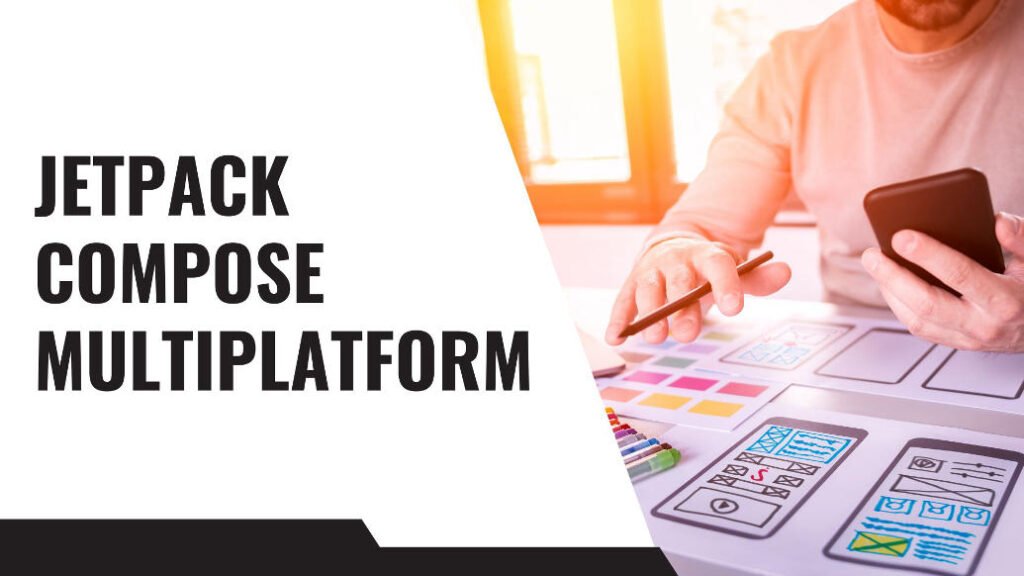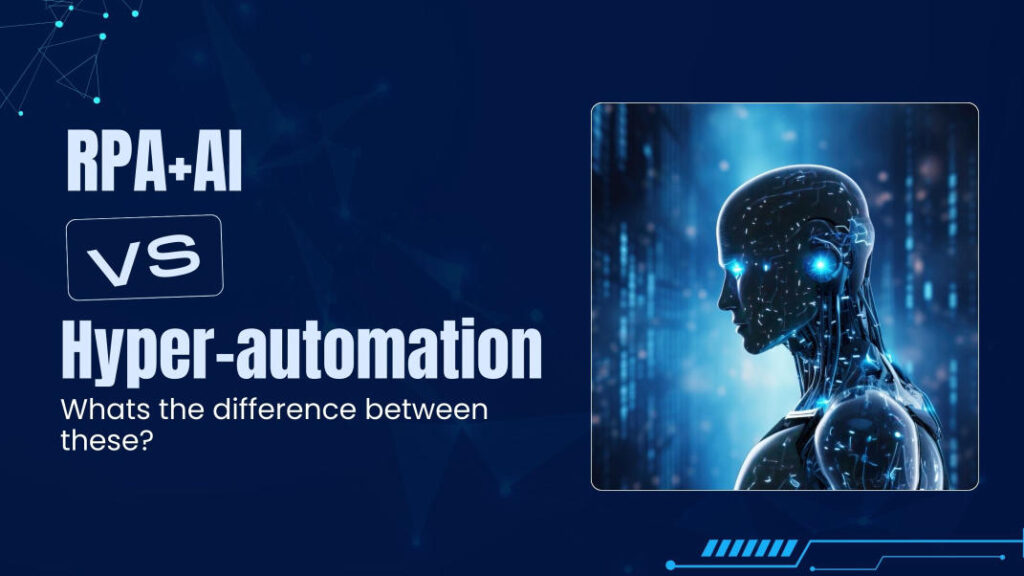In an age of digital reinvention, companies require rapid and seamless offshore mobile app development services to support experiences that are both frictionless and personalised. This is where Jetpack Compose for Multiplatform (CMP) comes into play –– a state-of-the-art approach that enables devs to build beautiful, native-like apps for Android and iOS, as well as desktop form factors, with a single Kotlin codebase.
Whether you are an Android app development company or a business in need of the best custom software development companies, understanding how Jetpack Compose can change your cross-platform strategy is paramount. In this post, we’ll find more about why Jetpack Compose is so popular already, what you can do with it and how it helps both startups and enterprise companies.
What Is Jetpack Compose Multiplatform?
Jetpack Compose Multiplatform, to put it simply, is the next stage for Google’s Jetpack Compose. Another benefit over a typical approach is that you don’t have to develop for Android and iOS; CMP allows developers to write UI code once in Kotlin and deploy it across multiple platforms.
Using Kotlin Multiplatform, companies can share business and UI logic therefore reducing development costs while making time-to-market faster and your application design consistent.
If you’re interested in more technical details, visit the JetBrains Compose Multiplatform official page.
Why Cross-Platform Development Matters
Over 6.9 billion people will use smartphones globally by 2025 (Statista). Which is why, if you want to maximise your reach, you need your app available on iOS and Android. But when you develop a dedicated native application for every platform you work with, this workload is doubled and usually by about 30-40% more than cross-platform approaches.
Original cross-platform frameworks such as Flutter and React Native have tried tackling this but usually with trade-offs in native performance or requiring developers to learn new conventions. Jetpack Compose for Multiplatform is something special as it allows you to write one codebase, in Kotlin, and deliver a native-like experience across platforms.
For companies partnered with (for example) an Android mobile app development service or in need of iOS development, this translates to quicker time-to-market and lower overheads overall while still keeping user experience at the forefront.
Jetpack Compose: The Future of Cross-Platform Development
1. Time and effort are saved by Unified Codebase
The most powerful benefit of Jetpack Compose is to write once and run on any platform. Instead of dealing with two different source-code projects for your apps, you and your team use a single, cross-platform environment.
This means fewer errors, bug fixing is simpler, and your Kotlin multiplatform app development company focuses on delivering features instead of maintaining platform-specific code.
According to JetBrains’ survey, companies that hire Kotlin Multiplatform can share between 80% and 95% of their Android codebase on iOS, significantly cutting down on time typically taken in development.
2. Native Performance Across Platforms
CMP doesn’t compromise on performance. Apps developed with Jetpack Compose look and feel as if they were built specifically for each platform, thanks to its use of native rendering engines. Animations are crisp and UI elements are responsive with no perceivable lag for the users.
For instance, some start-ups that use CMP have disclosed performance numbers that are as good, if not better, than native apps for some features, Medium had determined based on its cross-platform app analysis.
3. Incremental Migration Is Possible
Not sure about moving away from existing apps to CMP? No problem. One of the biggest benefits is incremental adoption. Fair companies can first transition their Android apps, and then progressively roll out shared components to iOS. The above technique minimises risks, and businesses can opt to outsource Jetpack Compose development as well if need be.
Real-World Applications of Jetpack Compose in Android and iOS Development
Enterprise Adoption
Companies such as Netflix and Baidu have successfully embraced Kotlin Multiplatform in the real world, reusing a substantial chunk of code between Android and iOS. This is a mechanism they use to keep their user experience consistent while moving fast.
Startups are also benefiting. Companies like Instabee have migrated their Android app to CMP, making rapid iOS development easier and faster deployment.
Cross-Platform Mobile App Development Success
- Fintech: CMP enables consistency for financial applications on Android and iOS with logical error prevention in transactions.
- Education: Education Platforms can provide a consistent experience across devices and reduce substantial dev time.
- Productivity Applications: Apps such as habit trackers claim to share more than 90% of their codebase, which reduces the development time significantly.
Performance Insights
The second announcement was the release of a comparison made with 15 applications that have been built using various frameworks/bundles (Jetpack Compose Multiplatform, SwiftUI and native Android/iOS), finding out that:
- CMP is also competitive, and in some cases faster and smoother, as encoded for native implementations.
- Ideally with IOS, we should commit to CMP fully for effective results instead of using different frameworks in the middle of the project.
Jetpack Compose Migration Strategies
Successful migration requires a strategy. For instance, Airbnb used Kotlin Multiplatform and got to:
- 95% code used between Android and iOS
- Shorter release life cycles, which changed releases from a few months to every week
This methodology enables Jetpack Compose consulting services to provide updates at a faster pace, preserve the strong quality of the mobile app development services and cut down on development costs.
How Best Custom Software Development Companies Use Jetpack Compose App Agency Services
Developer Efficiency
CMP enables developers to leverage their current expertise in Kotlin without having to learn a suite of platform-specific frameworks. This becomes all the more important if you intend to hire a Jetpack Compose developer or outsource your work to a Jetpack Compose app agency.
Cost-Effectiveness
The fewer people who have to develop/maintain it, the shorter development cycles and lower maintenance costs. This allows companies to save 30–40% development costs and find CMP an attractive proposition for cost-conscious organisations.
Scalability
CMP architecture supports future growth. And you can extend your apps, add modules or port to new platforms very easily. This makes it ideal for Jetpack Compose enterprise solutions.
Jetpack Compose vs Traditional Approaches
| Aspect | Native (Separate) Development | Flutter/React Native | Jetpack Compose Multiplatform |
| Code Reuse | Low | High | High |
| Performance | High | Medium-High | High |
| Learning Curve | Medium | Steep (new language/JS/Dart) | Low (Kotlin) |
| Time to Market | Slow | Medium | Fast |
| Community Support | Mature | Strong | Rapidly growing |
For enterprises partnered with top-notch custom software development companies, Jetpack Compose is posing a strong challenge to cross-platform race, especially if your team already uses Kotlin.
How to Get Started with Jetpack Compose
- Hire Jetpack Compose developers : Seek out teams or firms with expertise in CMP and Kotlin Multiplatform development.
- Plan Your Migration: Determine which aspects of your app will gain the most from a shared codebase.
- Define metrics: Measure app performance, responsiveness, and user experience on all platforms.
- Consider Outsourcing: If you are short on in-house resources, use a Kotlin multiplatform app development company to speed up the time to market.
The Jetpack Compose app development cost depends, among other factors, on the complexity of the application, team location and target platforms. By overall reading costs, the medium-sized app can be anywhere between $40K to $100K.
Final Takeaway: Cross-Platform Mobile App Development with Jetpack Compose for the Future
Jetpack Compose Multiplatform is changing how companies use Jetpack Compose for cross-platform mobile app development services. It is designed for native performance, code sharing and productivity across all platforms including Android and iOS.
If you are a startup searching for ways to decrease your time-to-market, an Android app development company striving for effective workflows, or even a business on the lookout for the best custom software development companies, then Jetpack Compose has got the flexibility, performance and scalability that your modern application needs!
By using CMP, businesses are able to delegate Jetpack Compose development, outsource dedicated developers, and consult specialists implementing a cross-platform approach compliant with the company’s needs.
FAQs on Jetpack Compose for Multiplatform Mobile Apps
What is Jetpack Compose Multiplatform?
What are the advantages of choosing Jetpack Compose for cross-platform mobile app development?
Can I get a Jetpack Compose developer to work on my project?
What is the cost of Jetpack Compose app development?
Can we do iOS development service using Jetpack Compose Builds?
Is Jetpack Compose suitable for startups or enterprise solutions?
How does Jetpack Compose enhance the performance of the mobile application?




